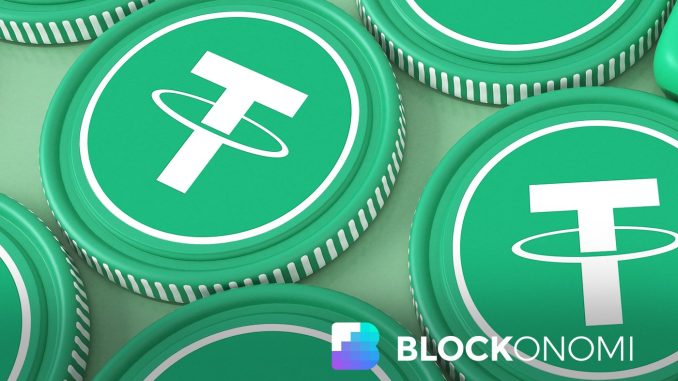
Leading cryptocurrency exchange Kraken recently addressed rumors about a possible delisting of Tether’s stablecoin (USDT) in Europe. Kraken confirmed that it will continue to support Tether until the new regulations are fully enacted.
Kraken’s earlier considerations sparked speculation about withdrawing support for Tether (USDT). However, the exchange has clarified its stance.
According to a report last Friday, Kraken is “actively reviewing” USDT’s status in the EU ahead of the Markets in Crypto-Assets Regulation (MiCA) regulations, which will become effective in July 2024. The exchange is considering delisting USDT to comply with the upcoming rules.
Kraken’s considerations sparked speculations that it may delist USDT on its EU platform.
Let’s be clear: @krakenfx continues to list USDT in Europe and we have no plans to delist at this time.
We know our European clients value access to USDT and we continue to look at all options to offer USDT under the upcoming regime.
We will of course follow all legal…
— Mark Greenberg (@marklg) May 18, 2024
Tether Is A Weak Point
In response to the ongoing rumors, Mark Greenberg, Kraken’s Global Head of Asset Growth & Management, stressed that the exchange currently has no plans to stop supporting Tether.
According to Greenberg, European users “value access to USDT,” and Kraken maintains stablecoin offerings. He also noted that the exchange will adhere to all legal requirements, even if they disagree with them.
“We will comply with all legal requirements, even those we disagree with. However, since the rules are not finalized, we will do everything possible to continue providing all relevant stablecoins to our European customers,” Greenberg stated in a post on X on May 18.
Marcus Hughes, global head of regulatory strategy at Kraken, previously told Bloomberg that Kraken had been prepared for “all eventualities,” including the possibility of delisting USDT. However, Hughes noted that it would depend on the finalization of the upcoming EU regulations.
In response to the news, Tether said it expects exchanges like Kraken to prioritize EUR liquidity for EU customers and maintain USDT as an on-ramp and off-ramp solution.
The exchange’s move also reflects a cautious yet proactive approach of cryptocurrency service providers to cope with regulatory changes.
The upcoming MiCA has already impacted the stablecoin market. Cryptocurrency exchange OKX previously suspended the use of USDT for buying and selling other cryptocurrencies in the EU.
Exchanges Want Zero Problems
Kraken’s approach comes amid intensifying regulatory scrutiny of stablecoins. Global authorities have repeatedly warned against the use of cryptocurrencies, particularly stablecoins, in illicit activities.
Tether has been the focus of much scrutiny due to its remarkable market influence. According to data from CoinMarketCap, as of May 19, Tether is the largest stablecoin in the world, with a market cap surpassing $111 billion.
In its history as the leading stablecoin, Tether has faced many regulatory challenges in the US and European markets.
For example, Tether faced regulatory penalties due to problems with its reserves. In 2021, the Commodity Futures Trading Commission (CFTC) fined Tether $41 million for misrepresenting the sufficiency of its reserves, and the company also settled with the New York Attorney General’s Office for $18.5 million.
In a recent podcast, Ripple CEO Brad Garlinghouse expressed his views on the cryptocurrency industry. He particularly focused on the world’s largest stablecoin and raised concerns that if the US government takes action against the project, it could negatively impact the entire cryptocurrency market.
Garlinghouse believes that a black swan event, an unpredictable and impactful event, is inevitable in the cryptocurrency space. However, he remains unclear about the exact form it will take. He additionally stated that the US government’s scrutiny of Tether could be a major factor leading to such an event.
In response, Tether said Ripple was spreading FUD about USDT to promote its upcoming stablecoin.
Initially, Tether expressed refusal to comply with MICA. However, recently, due to the stress and considerable impact from both main markets in the US and Europe, Tether’s CEO has expressed reservations about complying with MiCA.
MiCA regulations confirm that issuers of fiat-backed stablecoins must follow existing electronic money institution (EMI) rules. Many stablecoins in Europe are operating illegally because they lack EMI regulation.











